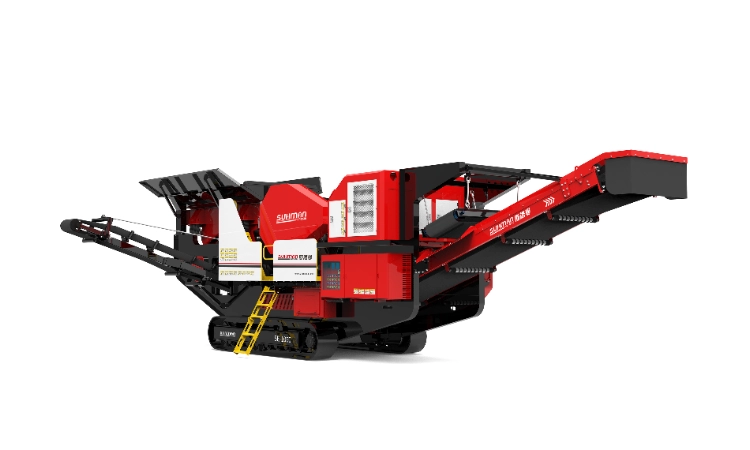Mobile vs. Stationary Crushers: A Detailed Comparison
In the world of material processing, crushers play a critical role in transforming raw materials into smaller, usable sizes. There are two primary types of crushers: mobile crushers and stationary crushers. Both have their advantages and disadvantages, and the choice between them depends on factors such as project requirements, operational environments, and budget. This article explores the key differences, advantages, and disadvantages of mobile and stationary crushers, helping you make an informed decision for your next crushing project.
1. Introduction to Crushers
Crushers are heavy machinery designed to break down large chunks of material, such as rock, ores, and construction debris, into smaller and more manageable pieces. Whether it’s in mining, construction, demolition, or recycling, crushers are essential in various industries.
Mobile crushers are designed to be easily transported to different sites and can be operated while on the move. They are typically mounted on tracks or wheels, which makes them highly versatile for operations that require mobility. Stationary crushers, on the other hand, are set up at a fixed location, often within a fixed crushing plant, and provide continuous operations with a high degree of stability.
2. Mobile Crushers: Flexibility and Efficiency
Mobile crushers are renowned for their flexibility, ease of transport, and ability to work directly at job sites. Here are some key benefits:
- Portability: The primary advantage of mobile crushers is their ability to move between sites. This is particularly useful in large construction or mining projects where materials need to be processed in multiple locations.
- Reduced Transportation Costs: Since the mobile crusher can be moved directly to the material source, transportation costs are significantly reduced. This is especially beneficial in projects that involve remote locations or multiple sites.
- Space-Saving: Mobile crushers eliminate the need for extensive infrastructure. They can be set up on-site quickly, and once the project is complete, the equipment can be easily relocated to another location.
- Rapid Setup: Mobile crushers can be set up and start operating quickly, minimizing downtime between tasks.
- Flexibility in Operations: Mobile crushers are ideal for smaller-scale operations or projects that require frequent relocation, such as road construction, demolition, or aggregate production.
3. Stationary Crushers: Stability and Capacity
Stationary crushers are best known for their robust design and high capacity. These crushers are typically installed in permanent locations, making them ideal for large-scale, high-volume operations. Here are some advantages of stationary crushers:
- High Capacity and Durability: Stationary crushers generally offer higher output rates compared to mobile crushers. They are built to handle large volumes of material continuously and are more stable, offering consistent performance.
- Advanced Features: Stationary crushers are often equipped with larger and more sophisticated crushing systems, making them suitable for hard and heavy materials like ores and large rocks.
- Long-Term Investment: Because they are designed for high-volume production and continuous operation, stationary crushers are more suitable for long-term, heavy-duty applications in mining or aggregate processing.
- Efficiency in Operation: With fewer moving parts, stationary crushers often provide more operational stability and can be more efficient for consistent, high-volume work.
- Customization: Stationary crushers can be tailored to specific needs based on the requirements of the site or project, including incorporating advanced technologies like automation and optimization.
4. Comparison of Mobile and Stationary Crushers
| Feature | Mobile Crushers | Stationary Crushers |
|---|---|---|
| Mobility | Highly portable, can be moved between sites | Fixed at a specific location, no mobility |
| Setup Time | Quick to set up and start working | Requires more time for setup and installation |
| Operational Efficiency | Ideal for short-term or variable projects | Best for long-term, high-volume operations |
| Capacity | Generally lower capacity than stationary crushers | High capacity, suitable for large-scale operations |
| Flexibility | Can be easily relocated to different project sites | Limited to a fixed location, no flexibility |
| Maintenance Costs | Regular relocation and transport may increase costs | Lower mobility results in fewer logistical costs |
| Cost of Investment | Higher initial cost due to transportation features | Lower mobility-related costs, but higher infrastructure investment |
5. Factors Influencing Crusher Selection
When choosing between mobile and stationary crushers, several factors should be considered:
- Project Type: If the project requires crushing materials at multiple locations or involves a series of smaller-scale operations, a mobile crusher would be the ideal choice. For large-scale, continuous operations, a stationary crusher would be more appropriate.
- Material Type: If you’re working with tough and hard materials, stationary crushers tend to handle larger, more challenging materials better due to their higher capacity and robust design.
- Site Conditions: In remote locations with limited access to infrastructure, a mobile crusher would provide the flexibility needed to get the job done without excessive transportation needs.
- Budget and Time Constraints: Mobile crushers can be more cost-effective for short-term projects due to lower infrastructure requirements, while stationary crushers are more suitable for large-scale, high-output operations that justify their higher initial investment.
6. Conclusion: Which Crusher is Right for You?
Both mobile crushers and stationary crushers come with distinct advantages. Mobile crushers excel in flexibility, portability, and quick setup, making them ideal for short-term projects or locations with challenging access. Stationary crushers, on the other hand, offer higher capacity, durability, and long-term cost-effectiveness for high-volume applications.
Choosing between the two depends largely on your specific project requirements, including mobility needs, material types, and budget considerations.
For SUHMAN, we offer both mobile and stationary crushers designed for diverse applications. Whether you need a mobile impact crusher for flexible, on-site processing or a stationary jaw crusher for high-volume operations, SUHMAN has the right solution for your needs.
Visit our suhmancrusher.com to learn more about our range of crushing equipment.
I hope this provides the detailed comparison you’re looking for! Let me know if you’d like any further adjustments or more specific details.



